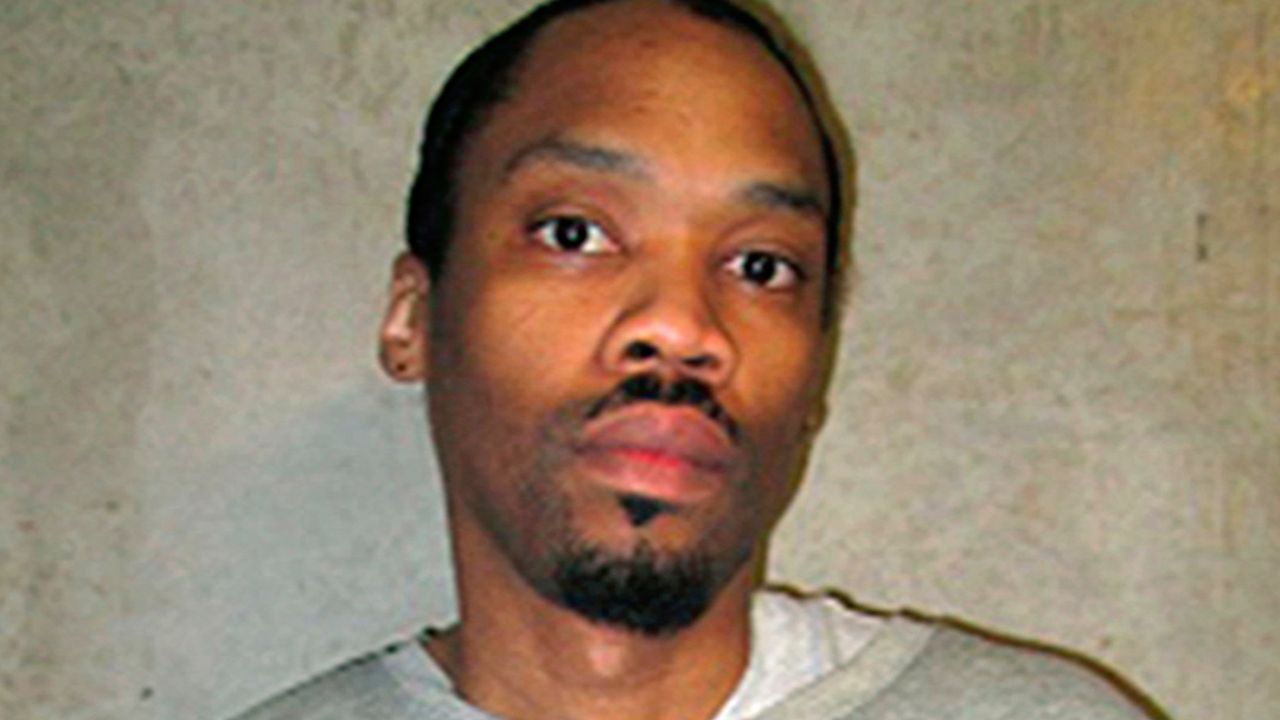Oklahoma Gov. Kevin Stitt commuted the death sentence of condemned inmate Julius Jones on Thursday, just hours before his scheduled execution. Jones has proclaimed his innocence from death row for more than two decades in the 1999 killing of a suburban Oklahoma City businessman.
Stitt commuted the 41-year-old Jones’ death sentence to life imprisonment without the possibility of parole. He had been scheduled for execution at 4 p.m.
“After prayerful consideration and reviewing materials presented by all sides of this case, I have determined to commute Julius Jones’ sentence to life imprisonment without the possibility of parole,” Stitt said in a statement.
Amanda Bass, Jones' attorney, said that Gov. Stitt "took an important step today towards restoring faith in the criminal justice system by ensuring that Oklahoma does not execute an innocent man."
Bass wrote that while they hoped Stitt's commutation would include the possibility of parole, "we are grateful that the Governor has prevented an irreparable mistake."
A crowd that had gathered inside of the Oklahoma Capitol in support of Jones broke out into loud applause and cheers after the decision was announced shortly after noon Thursday.
But activists pledged that this fight is not over, for Jones' case and others.
"I’m truly thankful that #JuliusJones will not be executed," Bernice King, daughter of Martin Luther King, Jr., wrote on Twitter. "@GovStitt did order ineligibility to apply for a commutation, pardon, or parole for the rest of his life. So the work for justice continues. Very importantly and most urgently, we must abolish the death penalty."
Earlier Thursday, Jones’ attorneys had filed a last-minute emergency request seeking a temporary stop to his execution, saying Oklahoma’s lethal injection procedures pose a “serious and substantial risk of severe suffering and pain to prisoners” and citing last month’s execution in which John Marion Grant convulsed and vomited as he was being put to death.
The state’s Pardon and Parole Board recommended in a 3-1 vote on Nov. 1 that Stitt commute Jones’ sentence to life in prison, with several members of the panel agreeing they had doubts about the evidence that led to Jones’ conviction.
Jones was convicted of first-degree murder and sentenced to die for the 1999 shooting death of Edmond businessman Paul Howell during a carjacking.
Jones’ case drew widespread attention after it was profiled in “The Last Defense,” a three-episode documentary produced by actress Viola Davis that aired on ABC in 2018. Since then, reality television star Kim Kardashian West and athletes with Oklahoma ties, including NBA stars Russell Westbrook, Blake Griffin and Trae Young, have urged Stitt to commute Jones’ death sentence and spare his life.
"Please join in the fight to save an innocent man’s life,"Golden State Warriors coach Steve Kerr said in a video posted to Twitter on Wednesday. "Do it for Julius. Do it for his family. Do it for our country. This cannot happen in a civilized nation and we have to keep this from happening. Do everything you can."
Cleveland Browns quarterback Baker Mayfield, who played college football at Oklahoma, teared up when asked about Jones' case on Wednesday.
"That is pretty rough to be honest with you," Mayfield, who wore Jones' name on his helmet last season, told reporters. "That’s not something that’s easy to talk about. I’ve been trying to get the facts stated and the truth to be told for a while, but it is tough to think about. Tried and tried. It is a shame that it has gotten this far. We are 24 hours away. So, it’s tough. You know, hopefully, God can intervene, and handle it correctly and do the things he needs to do."
Jones alleges he was framed by the actual killer, a high school friend and former co-defendant who was a key witness against him. But Oklahoma County District Attorney David Prater and the state’s former attorney general, Mike Hunter, have said the evidence against Jones is overwhelming.
Information from trial transcripts shows that witnesses identified Jones as the shooter and placed him with Howell’s stolen vehicle. Investigators also found the murder weapon wrapped in a bandanna with Jones’ DNA in an attic space above his bedroom. Jones claimed in his commutation filing that the gun and bandanna were planted there by the actual killer, who had been inside Jones’ house after the killing.
Oklahoma ended a six-year moratorium on executions — brought on by concerns over its lethal injection methods — last month. Grant, 60, convulsed and vomited as he was being put to death Oct. 28.
Grant was the first person in Oklahoma to be executed since a series of flawed lethal injections in 2014 and 2015. Richard Glossip was just hours away from being executed in September 2015 when prison officials realized they had the wrong lethal drug. It was later revealed that the same wrong drug had been used to execute an inmate in January 2015.
The drug mix-ups followed a botched execution in April 2014 in which inmate Clayton Lockett struggled on a gurney before dying 43 minutes into his lethal injection — and after the state’s prisons chief ordered executioners to stop.



